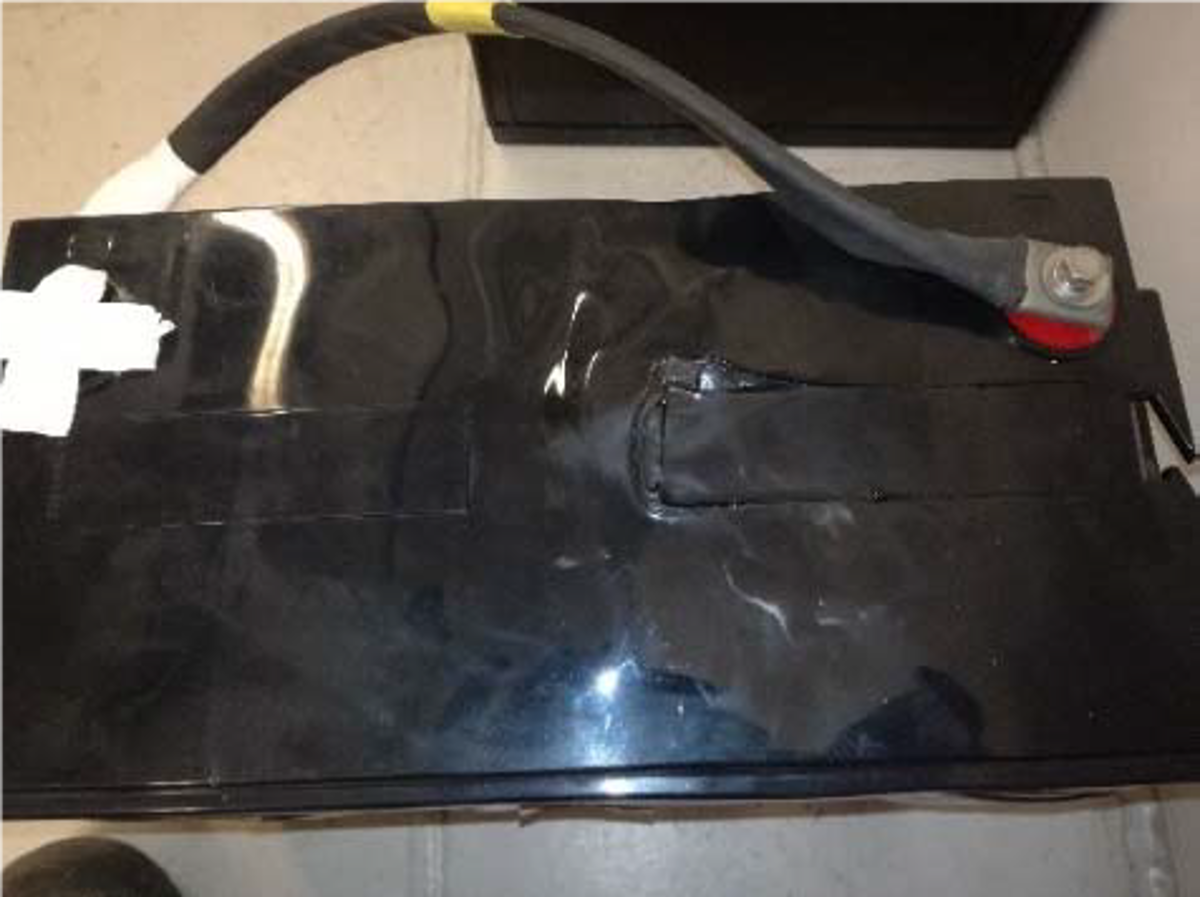Near miss: Fire/explosion thermal runaway – lead acid battery
- Safety Flash
- Published on 12 August 2019
- Generated on 22 February 2026
- IMCA SF 19/19
- 2 minute read
Jump to:
An overheated and swollen lead acid battery was found on-board a vessel.
What went wrong?
When charging, the temperature inside the affected battery rose beyond the critical level.
As the heat was unable to dissipate fast enough, the chemical reaction inside the battery accelerated and led to an even higher charging current and heat generation.

What were the causes?
Heat generated in the battery cell had occurred without any warning signs:
- The battery in question was found to be at the end of its design life and vulnerable to thermal runaway.
- Due to the heat generated within the battery, the battery became pressurised and deformed.
- In addition to design life, overcharging, internal physical damage, internal short circuit or a hot environment are all potential causes for battery fires or explosions.
What actions were taken?
- Depending on the battery configuration; isolate the battery or string of batteries, or shut down the charger.
- Cool the battery and ventilate the room.
What lessons were learned?
- Ensure all batteries are subject to periodical inspection and maintenance; consideration may be given to inspection by infra-red camera to look for hotspots.
- Report any sign of external damage.
- Ensure that battery chargers and procedures are correct for the battery type.
- Consider the installation of a “thermal runaway monitor” on battery packages (UPS).
- Batteries should be in rooms suitable for batteries with the required ventilation, fire detection and fire-fighting capabilities.
- Ensure there is a specific risk assessment and transport/disposal plan relating to the removal of faulty batteries, with specific care being taken to identify the correct personal protective equipment (PPE) to be worn, and any transportation necessary.
Related Safety Flashes
-
IMCA SF 09/15
23 June 2015
-
IMCA SF 05/13
4 April 2013
-
IMCA SF 11/03
1 September 2003
-
IMCA SF 01/02
1 January 2002
IMCA Safety Flashes summarise key safety matters and incidents, allowing lessons to be more easily learnt for the benefit of the entire offshore industry.
The effectiveness of the IMCA Safety Flash system depends on the industry sharing information and so avoiding repeat incidents. Incidents are classified according to IOGP's Life Saving Rules.
All information is anonymised or sanitised, as appropriate, and warnings for graphic content included where possible.
IMCA makes every effort to ensure both the accuracy and reliability of the information shared, but is not be liable for any guidance and/or recommendation and/or statement herein contained.
The information contained in this document does not fulfil or replace any individual's or Member's legal, regulatory or other duties or obligations in respect of their operations. Individuals and Members remain solely responsible for the safe, lawful and proper conduct of their operations.
Share your safety incidents with IMCA online. Sign-up to receive Safety Flashes straight to your email.